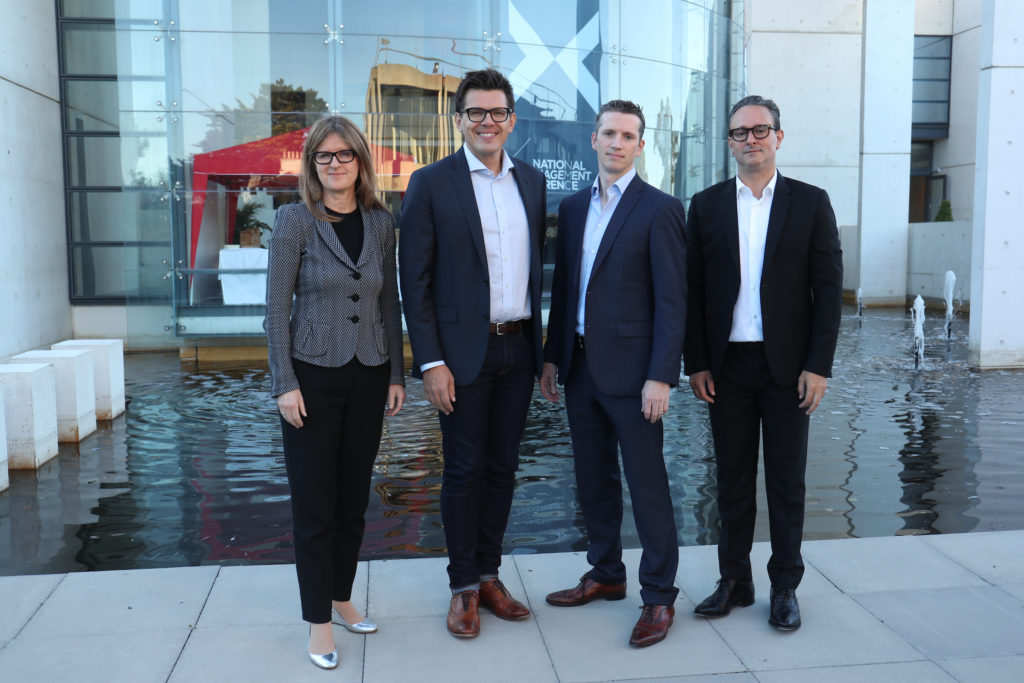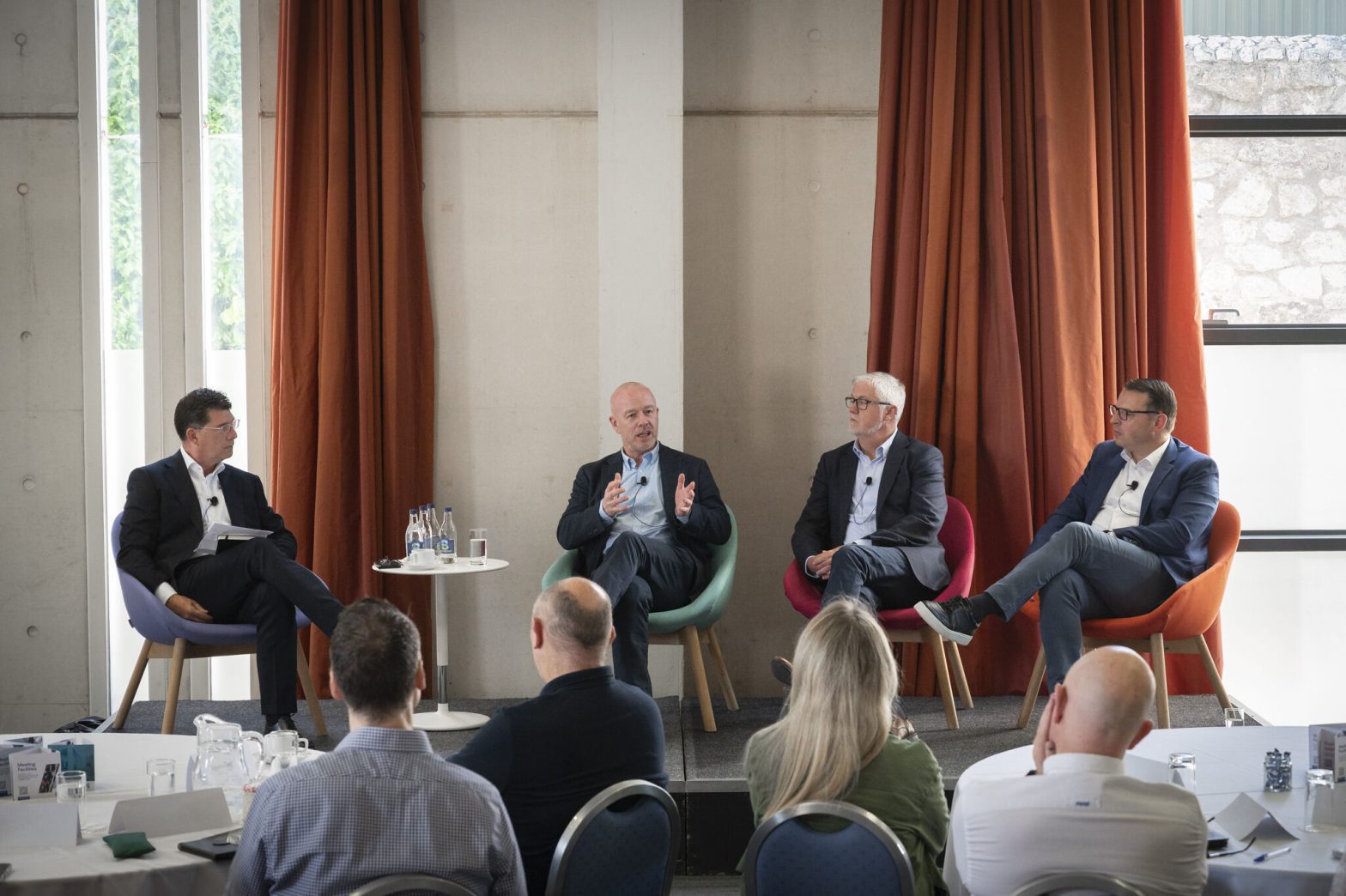Insights from the Stage: Highlights from IMI Speakers
By | 3rd January 2019
2018 saw some of the world’s leading business thinkers deliver insights to IMI members over a series of thought-leadership events.
From exploring what companies need to survive in the future, what leader’s need to thrive in a shifting landscape and how re-examining fundamental principles can lead to breakthrough innovations, we have selected a number of key insights from their sessions.

Jonas Ridderstralle: The Future Firm: Building an Evolutionary Mindset
‘What we sell and what we market tends to be two different things. Many companies fail to realize that when we are selling experience, the product is no longer so important.’ – Jonas Ridderstralle
Jonas Ridderstrale is the author of multiple international bestsellers such as Funky Business, which recently ranked at number 16 in a Bloomsbury survey of the best business books of all time.
In the 1st Masterclass of 2018, Jonas explored the evolutionary mindset on why ‘survival of the sexiest’ can trump ‘survival of the fittest’ when it comes to consumer choices, and how shifting demographics are changing marketplaces and buying behaviours.
In the world of business and human emotions, perception often beats reality when it comes to customers choosing their favoured product. Because customers make emotional and not rational decisions, it’s the companies that stand out – the ‘sexiest’ companies – that capture the market.
.
Zoe Chance: Woo the Gator – Research-Based Influence Strategies for Senior Leaders
‘People constantly come up to me and say ‘ah, but I’m different, I work more rationally than the average person…They probably don’t’. – Zoe Chance
Zoe Chance, Yale School of management, is an expert in influence and persuasion. In 2017, Thinkers50 named Zoe one of the top global management thinkers to watch.
In her Masterclass, Zoё explored what behavioural economics can teach us about how the minds of our employees and customers really work through the prism of the ‘gator brain’ – the instinctually led brain of the alligator.
Human beings are instinctual, lazy creatures who incorrectly believe they operate at the height of rationality. In the commercial world, this can give organisations a clear pathway for growth and innovation that, due to its fundamental nature, is often overlooked.
Businesses that adapt to this reality will be the ones that are successful. Indeed, the best determinant of whether a customer will continue to do business with you is not satisfaction or friend recommendation rates, but how much effort they personally put in to buy your product or service.
Listen to IMI Talking Leadership podcast interview with Zoe Chance
.
Susan David: This is Not an IQ Test – The Emotionally Agile Leader
‘Discomfort is the price of admission for a meaningful life.’ – Susan David
Susan David is Instructor of Psychology at Harvard Medical School and author of the #1 Wall Street Journal best-selling book “Emotional Agility”.
In the final IMI Masterclass of the year, Susan explored how leaders can train and use their emotional intelligence to achieve personal goals and organisational success.
There is a central paradox in the modern organisation: the same complexity that drives the need for agility also undermines it. When humans are faced with this complexity they tend to become less collaborative, more transactional and competitive with each other.
The solution is to become emotionally agile by acknowledging the messy human emotions people experience in an honest way, and to reject rigid denial.
‘Technology and change have outpaced our evolutionary capacity as human beings to adapt with that change’ said Susan. ‘When humans are faced with complexity, instead of being collaborative we are much more likely to become tribal and competitive. Instead of being relational we become transactional. The level of agility an organisation has is based on the emotional agility of those within it.’
.
Deborah Rowland: Is Change Changing?
‘Change always comes at a price. It’s going to be tough and a leader needs to honestly address that. The moment you name difficult truths and amplify them, that’s when change happens. I’ve seen most change fail not because of a lack of vision, but a lack of truth telling about the current state of the situation.’ – Deborah Rowland
Listed on the prestigious Thinkers50 list in 2017, Deborah is the co-author of “Sustaining Change: Leadership That Works” and the author of “Still Moving.”
As one of the keynote addresses at IMI’s National Management Conference, Deborah explored how a leader must look within before leading change externally, drawing on her experience in major global organisations including Shell, Gucci Group, BBC Worldwide and PepsiCo.
Before making real change, a leader first needs to be still. Because the human brain is hardwired for habits, change initiatives are often doomed from the outset because we use these same habits to break the pattern.
This leads to a series of ‘busy actions’, not sustainable change.
Leaders need to look inward and recognise those repeating patterns and how their ingrained biases are affecting their thinking when implementing change.
Nathan Furr: Innovative Leaders: Leading and Creating the Future’
‘Those common behavioural traps – the tendency to get stuck in the status quo, the fear of doing something different, the habit and routines that we have – they can be broken.’ – Nathan Furr
Nathan Furr leads INSEAD’s technology strategy, digital transformation and innovation programmes. He has worked closely with Google, AT&T and Sony to help transform their innovation efforts.
At the National Management Conference, Nathan not only talked about how innovative leaders come up with their ideas, but also how they win the resources and support to implement their ideas.
In an era demanding agility and flexibility, large organisations are using outdated management and innovative practices not suitable to this modern environment. In the past, management was about managing scale in a low-uncertainty environment; today, it is about managing rapid change.
By reworking old management structures and energising innovation through a culture of experimentation, big companies can successfully adapt to the fast-changing market around them – and not be run over by future start-ups.
In 2019, IMI members and guests will again be able to access a series of engaging and inspiring events. For more information on the 2019 line-up of IMI membership events, go to www.imi.ie/events.




